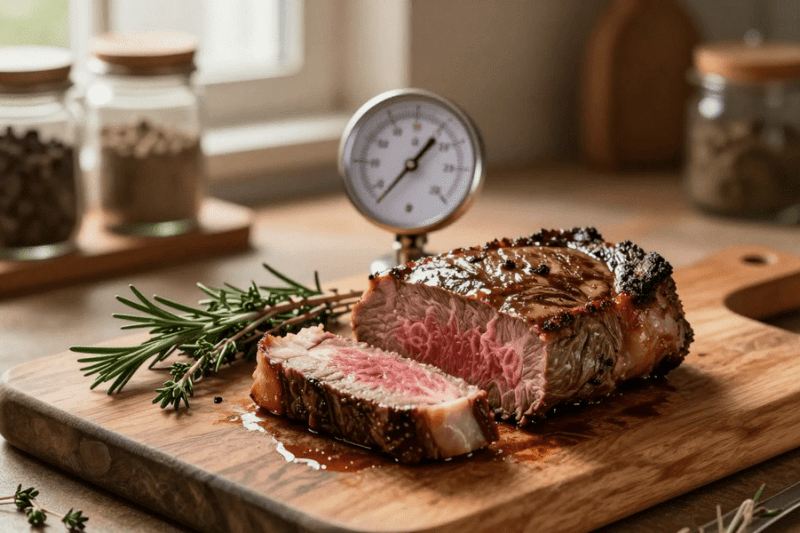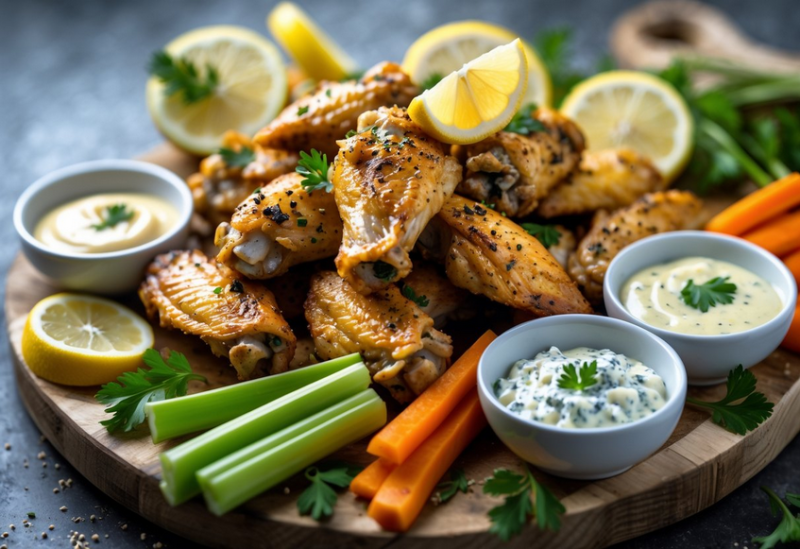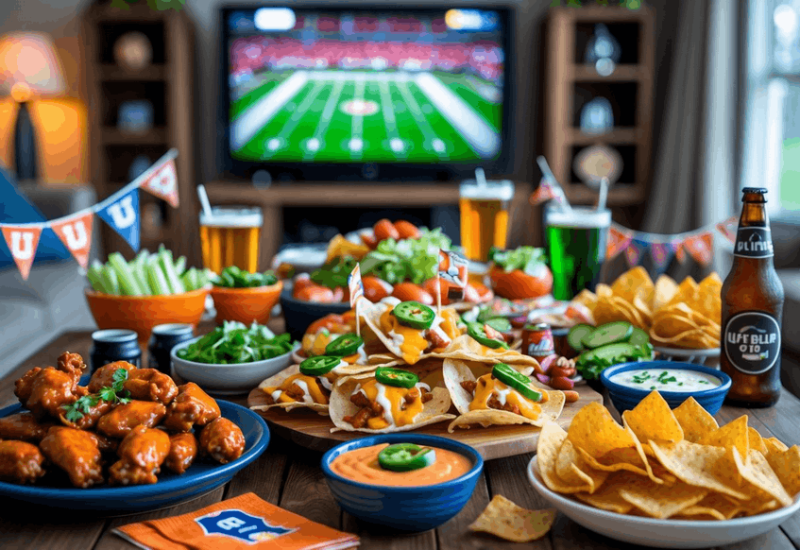Unlock delicious flavors and make your backyard barbecues unforgettable:

Summer is here, and it's time to fire up the grill. Whether you're cooking chicken, fish, or mushrooms, grilling is a staple of warm-weather cooking. But, it's easy to stick to the same old recipes and methods.
I'm here to help you break out of that routine. We'll explore some expert grilling techniques and outdoor cooking tips. This way, your outdoor cooking will stand out.
Key Takeaways
- Discover new grilling techniques to add variety to your outdoor cooking
- Learn how to add flavor to your grilled dishes with simple ingredients
- Get expert advice on how to grill like a pro
- Explore different types of outdoor cooking to elevate your grilling game
- Find out how to make your grilling experience more enjoyable and stress-free
Essential Grilling Setup for Maximum Flavor
Before you start grilling, make sure you have the right setup for the best flavor. A well-prepared grill and the right tools can greatly improve your grilled dishes.
Selecting the Perfect Grill for Your Cooking Style
Choosing the right grill is key to grilling success. Whether you like charcoal, gas, or electric grills, each has its own benefits. Charcoal grills give a smoky taste, while gas grills offer ease and temperature control.
Key Considerations:
- Fuel type (charcoal, gas, electric)
- Grill size and cooking surface area
- Heat control and distribution
- Durability and maintenance requirements
Must-Have Tools That Elevate Your Grilling Experience
According to Aramark Senior Executive Chef Tom Ramsey, grilling needs more equipment than other cooking. Some essential tools include:
| Tool | Purpose |
|---|---|
| Long Tongs | Safe and easy food handling |
| Heavy-Duty Aluminum Foil | Wrapping food and retaining moisture |
| Food Thermometer | Ensuring perfect doneness |
| Timer | Precise cooking times |
| Hot Pads | Protecting your hands from burns |
| Basting Brush | Applying marinades and sauces |
| Grill Basket | Cooking vegetables and small items |
Pre-Grilling Preparation: Setting Yourself Up for Success
Preparation is crucial for a smooth grilling experience. This includes preheating your grill, preparing your ingredients, and having all your tools ready.
Tip: Always preheat your grill to the right temperature before adding food. This ensures a good sear and prevents food from sticking to the grates.
Cleaning and Maintaining Your Grill for Better Taste
Regular grill maintenance is key for safety and flavor. Cleaning the grill grates after each use and checking for any worn-out parts can greatly improve your grilling results.
By focusing on these essential aspects of grilling setup, you'll be well on your way to creating delicious, flavorful dishes that will impress your family and friends.
Grilling Tips to Enhance Flavor: Marinades, Rubs and Brines
Marinades, rubs, and brines can turn your grilled dishes into something special. I love trying out different flavors, and these methods really make a difference. They change the taste and texture of your grilled foods.
My Favorite Homemade Marinades for Different Meats
Making your own marinades is easy and adds flavor to grilled meats. For chicken, try olive oil, lemon juice, garlic, and herbs like thyme and rosemary. Beef benefits from a mix of soy sauce, Worcestershire sauce, and a bit of brown sugar. Remember to include something acidic like citrus or vinegar to tenderize the meat.
Here's a basic marinade recipe: Combine 1/2 cup olive oil, 1/4 cup lemon juice, 2 cloves minced garlic, and 1 tablespoon chopped fresh herbs. Put your meat in a zip-top bag, add the marinade, and refrigerate for the right amount of time.
Dry Rub Combinations That Transform Ordinary Cuts
Dry rubs can also enhance the flavor of your grilled meats. A good rub adds a nice crust and brings out the meat's natural taste. For pork, use brown sugar, smoked paprika, and spices like cumin and chili powder. Lamb benefits from garlic, rosemary, and lemon zest.
"The key to a great dry rub is balance," a famous chef advises. "You need sweet, savory, and spicy elements for depth." Try different mixes to find your favorite.
The Art of Brining: My Secret to Juicier Grilled Foods
Brining involves soaking meat in a saltwater solution before grilling. It keeps the meat juicy and adds flavor. For chicken, a basic brine includes 1 cup kosher salt, 1 gallon water, and optional flavorings like sugar, herbs, and spices.
As
"Brining is a foolproof way to ensure your grilled meats stay moist and flavorful,"
notes a grilling expert. I've seen it work well, especially for poultry and pork.
Timing Is Everything: Optimal Marinating Periods
The marinating or brining time greatly affects the meat's outcome. For most meats, 2 to 4 hours is enough. But for tougher cuts, longer times can tenderize them.
Be careful not to over-marinate, as it can make the meat mushy. Always follow the recommended marinating times and adjust as needed based on your meat's type and thickness.
Mastering Heat Control and Cooking Techniques

To get better at grilling, you need to learn about heat control and cooking methods. The secret to great grilling is mastering heat control. This means knowing how to use direct and indirect heat, managing the temperature, and using different cooking techniques.
Direct vs. Indirect Heat: Creating Cooking Zones
Chef Tom Ramsey says there are two heat types for grilling: direct and indirect. Direct heat is good for small, quick foods like burgers and veggies. Indirect heat is better for big meats that cook more slowly. By setting up cooking zones on your grill, you can use both types of heat. For example, sear a steak on direct heat then finish it on indirect.
Temperature Management for Perfect Doneness
Managing temperature is key to perfect cooking. It's not just about throwing food on the grill. You need to control the temperature for the best results. Always use a thermometer to check your grill's temperature.
For example, when grilling steak, make sure the grill is hot enough to sear the outside. But not so hot that it burns before the inside is cooked right.
Smoking and Wood Chips: Adding Depth to Grilled Flavors
Smoking and using wood chips can make your grilled food taste richer. Different woods, like hickory or mesquite, give unique flavors. Soak your wood chips in water or liquid before grilling to enhance the smoke flavor. This works well for longer-cooking items like ribs or brisket.
Lid Open or Closed? When to Do Which
Whether to grill with the lid open or closed depends on what you're cooking. Grilling with the lid closed keeps heat in and cooks food evenly, great for big meats. Grilling with the lid open gives a crispy exterior and is good for quick-searing foods.
Common Temperature Mistakes to Avoid
One big mistake in grilling is not managing the temperature correctly. This can result in food being undercooked or overcooked. Always preheat your grill well and use a thermometer to check the temperature. Also, watch out for flare-ups, which can quickly char your food. Keep a spray bottle of water to control flare-ups.
Food-Specific Grilling Strategies for Impressive Results

To get the best grilling results, you need to adjust your methods for each food. Different foods need different approaches to bring out their flavors and textures. We'll look at how to grill various foods perfectly.
Beef, Pork, and Lamb: Techniques for Each Cut
Grilling red meats like beef, pork, and lamb requires knowing the cut. Thicker cuts need a mix of direct and indirect heat. For example, a ribeye steak is seared hot, then cooked on a cooler part of the grill for the perfect doneness.
For pork, a dry rub adds flavor. Lamb does well with herbs like rosemary and thyme. Letting the meat rest after grilling makes it tender and juicy.
Poultry: Preventing Dryness While Maximizing Flavor
Poultry like chicken and turkey can dry out if not grilled right. Brining before grilling keeps it moist. A marinade with lemon juice or vinegar boosts flavor.
Grill poultry over medium heat to avoid burning the outside before it's fully cooked. A meat thermometer ensures it's cooked safely.
Seafood: Delicate Grilling Approaches for Perfect Results
Seafood, especially delicate fish, needs a gentle touch. Use a grill mat or foil to prevent sticking. Brush seafood with oil and seasonings before grilling for extra flavor.
Grill shrimp and scallops quickly over high heat for a nice char. But watch the time to avoid overcooking.
Vegetables and Fruits: Unexpected Stars of the Grill
Grilling veggies and fruits brings out their sweetness and smoky flavor. Brush veggies like bell peppers and zucchini with olive oil and season with herbs.
Fruits like pineapple and peaches grill well over medium heat. This caramelizes their sugars, making them a tasty dessert or side.
By using these specific grilling strategies, you can improve your grilling skills. Whether it's meats, poultry, seafood, or veggies, knowing what each needs is key to great flavor and texture.
Conclusion
Mastering the ultimate grilling tips will help you make dishes that wow everyone. I've shared essential grilling setup and top tips for flavor. These delicious BBQ hacks will boost your grilling skills.
Using these tips will make your grilled food juicy and full of flavor. Whether you're experienced or new, these expert tips will improve your grilling. You'll get better results every time.
Now, it's time to start grilling. With a bit of patience and practice, you'll be making meals that taste like they're from a restaurant. Your dishes will impress everyone.
FAQ
Q: What is the best type of grill to use for grilling?
A: The best grill for you depends on how you like to cook. Think about the fuel, cooking surface, and how you control the heat. These factors will help you choose the right grill.
Q: How often should I clean my grill?
A: Clean your grill after each use to avoid residue and bacteria. Regular cleaning keeps your food tasting great.
Q: What is the difference between direct and indirect heat when grilling?
A: Direct heat means cooking right over the flames. Indirect heat cooks food away from the flames. Using both can help you cook perfectly and add variety to your dishes.
Q: How long should I marinate my meat before grilling?
A: Marinating time varies by meat and marinade. Aim for at least 30 minutes to several hours or overnight for a deeper flavor.
Q: What are some common mistakes to avoid when grilling?
A: Don't forget to preheat and manage the temperature. Also, don't overcrowd the grill. Avoiding these mistakes will improve your grilling results.
Q: How can I add smoky flavor to my grilled foods?
A: Use smoking and wood chips to add smoky flavor. Soaking wood chips in water or other liquids can enhance the taste. Different woods give unique flavors to your food.
Q: What are some tips for grilling delicate seafood?
A: Be gentle when grilling seafood to prevent it from breaking. Use a fish basket or grilling mat. Cook over medium heat for the best results.
Q: How can I prevent dryness when grilling poultry?
A: To avoid dry poultry, brine or marinate it first. Cook to the right internal temperature. Use techniques like tenting or basting to keep it moist.
Q: What are some unexpected stars of the grill?
A: Vegetables and fruits can be surprising stars of the grill. They add sweetness and texture. Try different types to find your favorites.
Q: How can I enhance the flavor of my grilled foods?
A: Use marinades, rubs, and brines to boost flavor. Experiment with cooking techniques and ingredients like wood chips and smoking.
DISCLAIMER
This document is provided for general information purposes only and should not be relied upon as providing legal advice, technical, or specific operational guidance to the reader, whether as to the practices described in the document or the applicable legal requirements and regulations. backyardgrillingpros.com expressly disclaims any responsibility for liability arising from or related to the use or misuse of any information in this document.



